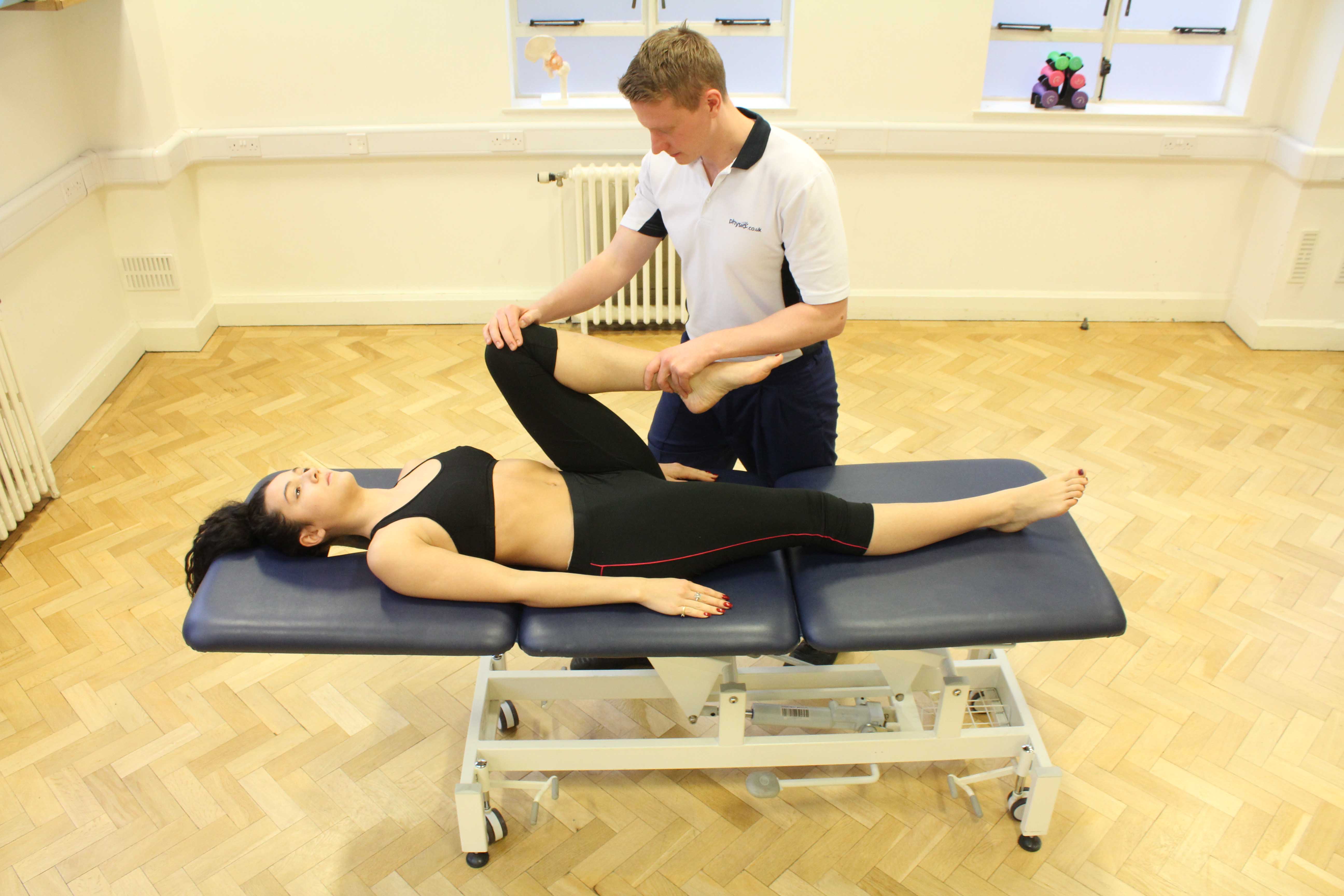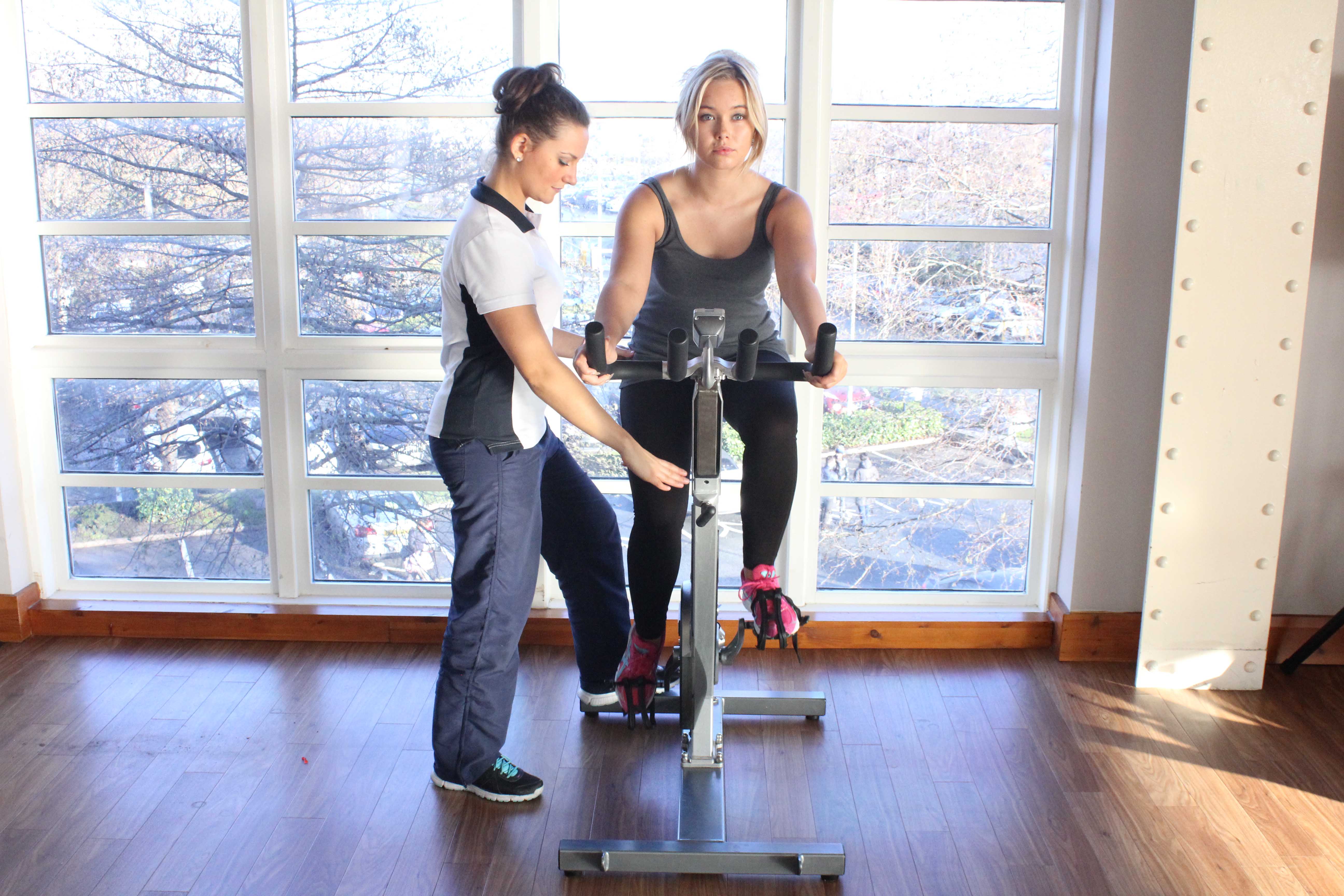What is Pes Anserinus bursitis?
Within your knee you have several small fluid filled sacs called bursae. Their role is primarily to act as cushions, reducing friction between bony surfaces and the tendons and ligaments that pass over them. There are four main Bursae present in the knee that are at most risk of injury. They are called Suprapatellar Bursa, Prepatellar Bursa, Infrapatellar Bursa and the Pes Anserinus Bursa.
The Pes Anserinus Bursa is located between the distal end of the medial cruciate ligament (MCL) and the anteromedial attachment of the Pen Anserinus tendon to the proximal head of the Tibia. In simple terms it separates the soft tissues of the inside boarder of the knee. Its position is designed to reduce friction between the ligaments and tendons. It can be difficult to confirm a specific diagnosis of Pes Anserinus bursitis as many conditions can affect the soft tissue in that area producing similar symptoms.
What causes Knee bursitis?
There are several causes for knee bursitis. Most often it occurs as a result of repetitive or prolonged activities that stress the various knee bursae present.
Some causes include long amounts of pressure on the bursa from resting your knee on a hard surface, repetitive falls, repetitive straightening of the knee against a resistance. It can also occur more suddenly if you have a direct force to the knee, such as from a fall onto a hard surface.
Other causes include Rheumatoid Arthritis, certain types of Gout and infection from nearby wounds. All these triggers result in damage to the Bursa or surrounding tissues, which in turn sets off an inflammatory reaction in the bursa. This makes the Bursa painful if compressed, as often happens when the joint is moving.
 Above: Therapist performing knee assessment
Above: Therapist performing knee assessmentWhat are the symptoms of Knee bursitis?
The pain and discomfort associated with Bursitis can build gradually or come on suddenly, depending on the underlying cause. If you have bursitis you may be experiencing;
- Pain or ache in your knee
- Pain that increases when pressure is place through your knee or bending and straightening it.
- Swelling in and around the knee.
- Stiffness in the knee joint.
- Weakness in knee movement, particularly when straightening it.
- A visible lump or bulge over the surface of your knee.
- Tenderness over the surface of your knee.
Your symptoms are likely to increase with activity.
How is Knee bursitis Diagnosed?
A thorough assessment by a doctor or one of our experienced physiotherapists at Physio.co.uk can carry out a comprehensive assessment to identify if you have knee bursitis.
For more information on how Physiotherapy can help treat Bursitis, or to book yourself an appointment, please email us at office@physio.co.uk or call 0330 088 7800.
What would a physiotherapy assessment for Knee bursitis involve?
If you book in for an appointment, the first session would be spent doing a comprehensive assessment before deciding on an appropriate treatment plan. Our physiotherapists at Physio.co.uk will divide this into two parts:
Subjective
A discussion between you and our physiotherapist to find out where in your arm the pain is, how long it has been there, what activities aggravate and ease your symptoms and how your injury is affecting you and your lifestyle.
Objective
An assessment of your pain, range of movement, muscle strength and a series of special tests to rule out other possible conditions.
What would physiotherapy treatment for Knee bursitis involve?
At Physio.co.uk, we believe it is important to tailor all our patient’s treatment sessions to their interests and personal goals. Some of the treatments you may receive as part of your treatment are listed below:
- Ice treatment
- Heat treatment
- Light massage
- Compression bandaging
- Exercises for muscle strength and flexibility
- Advice on activity modification
- Stretches
- Electrotherapy
 Above: Progressive knee strengthening exercises supervised by therapist
Above: Progressive knee strengthening exercises supervised by therapistHow can I arrange a physiotherapy assessment for Knee bursitis?
If you are experiencing pain, aching swelling or stiffness around your knee, and feel unable to continue your daily activity, you would benefit from an assessment at Physio.
You can contact us directly to arrange an assessment and we can advise you if further treatment is recommended, or give you details on self-management for minor cases. To arrange an appointment please email office@physio.co.uk or call 0330 088 7800.
Summary
Bursitis is a condition which may cause a visible deformity over the back of your knee, and can cause pain and stiffness upon moving your knee. It can inhibit normal activity and playing sports, or may be severe enough to limit all mobility.
At Physio.co.uk we want to ensure you get the best treatment for your injury and we will use pain relief techniques, strengthening exercises and activity specific treatments to help you achieve the best possible recovery.
For more information on how Physiotherapy can help treat Bursitis, or to book yourself an appointment, please email us at office@physio.co.uk or call 0330 088 7800.

 0330 088 7800
0330 088 7800


































